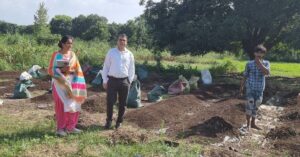Award-Winning TN Farmer Helps Hundreds Go Organic, Earns Huge Profits!
"I had practised chemical farming for around 30 years. I then observed how the pest that could once be killed by only 5 ml of pesticide now required more than 60 ml dosage."
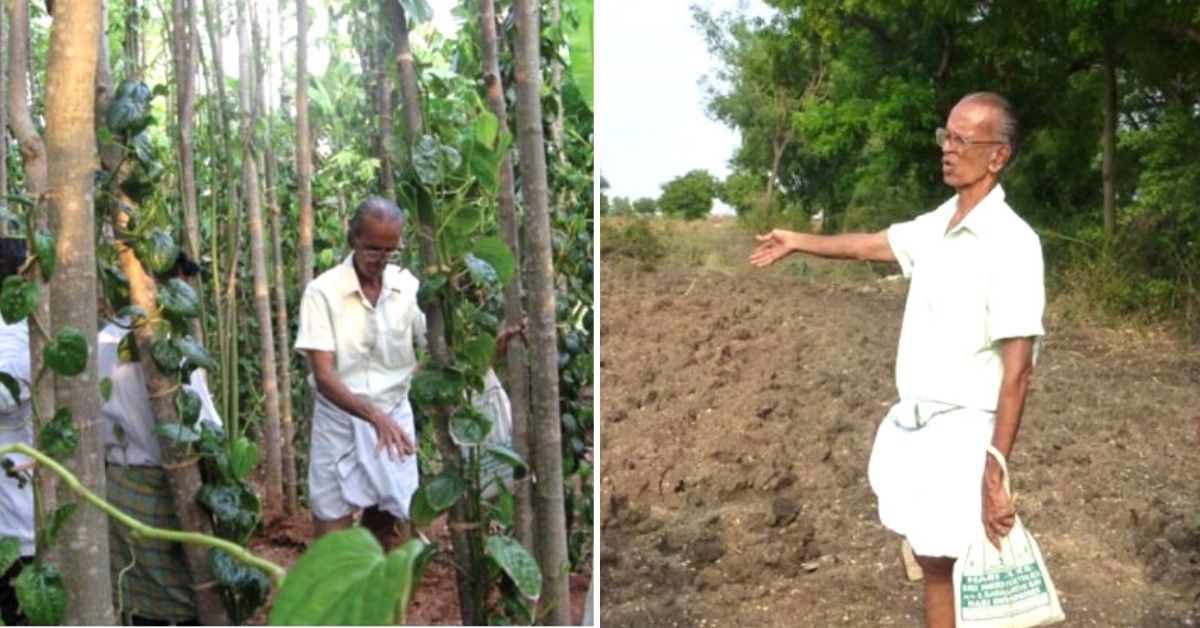
Organic farming is often perceived as a fairly novel concept, gaining prominence only in the past few years with the widespread rise in awareness among Indian farmers. But SR Sundararaman, a farmer from Erode, Tamil Nadu, is clearly an exception.
The 78-year-old has been growing a wide variety of crops in a completely natural and organic manner in his 10-acre farm since the early 1990s.

At present, he is hailed as one of the pioneers of organic farming in South India, and has received several awards and honours from the government and established agricultural institutions. Sundararaman has also trained hundreds of regional cultivators and established a well-knit network of organic farmers.
The switch to organic farming 28 years ago
A farmer by ancestry, Sundararaman started farming at barely 20 years of age, and for the first 30 years of his farming career, he engaged in conventional chemical farming, as per the trends of the times.
Post the green revolution of 1963, the unscientific overuse of chemicals of agricultural fields grew alarmingly, stripping the country’s fertile soil off its natural nutrients. It was a grave realisation about the degrading soil in his farm that propelled him to think organic.
“I consider renowned environmentalist SN Nagarajan as my organic farming guru. It was he who first told me about the benefits of organic farming, and also warned me that chemical farming would only lead to the rampant increase in diseases among humans,” begins Sundararaman.
After observing that the soil quality in his farm had deteriorated and how the same pest that could earlier be killed by only 5 ml of pesticide, now required more than 60 ml dosage due to increased resistance, he started looking for solutions in organic farming.
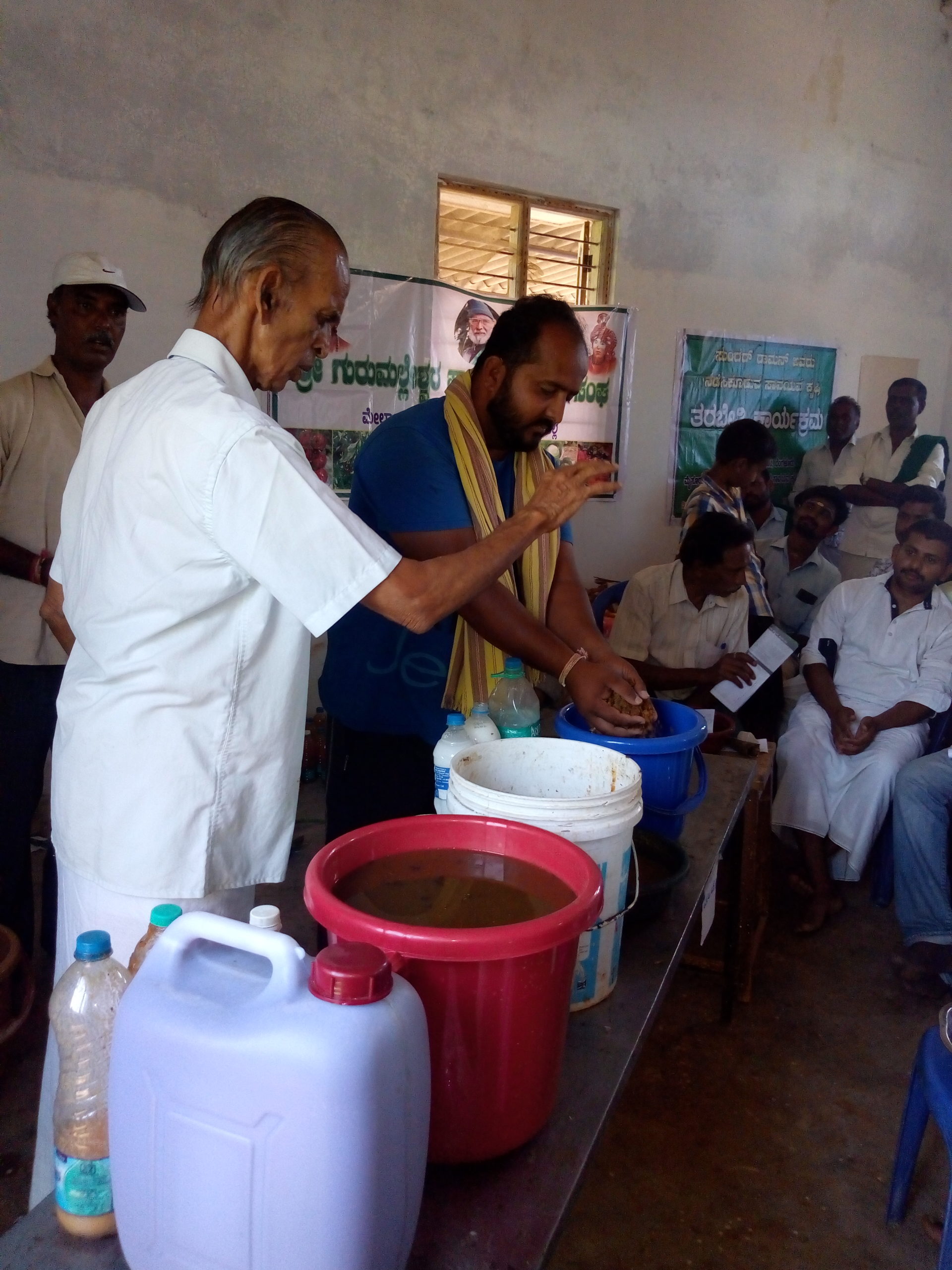
He keenly followed the guidance of Professor SA Dabholkar from Pune University, a Maths lecturer with an astounding knowledge about eco-culture. Prof Dabholkar was the first to make him aware of the presence of beneficial microbes in the soil. These microbes help in better water retention, nitrogen-fixing and enriching the soil. Their numbers can be multiplied by simply adding organic plant and animal manure to the soil, and engaging in mixed rotational farming thereafter.
“The top nine inches of the soil should have a healthy microflora that can be maintained by using farmyard manure,” mentions Sundararaman, sharing Prof Dabholkar’s advice.
The veteran farmer also claims to be deeply influenced by L Narayana Reddy, a pioneer organic farmer from Karnataka.
Sundararaman’s flourishing farming methods
In his 10 acres of land, Sundararaman now seasonally grows around 1 to 1.5 acres of coconut, 3 acres of turmeric, 2 to 4 acres of tapioca and approximately 2 acres of cattle feed. Besides these, he is also experimenting with organic moringa and curry leaves at present. His focus remains on restoring the natural biodiversity of a particular type of soil.
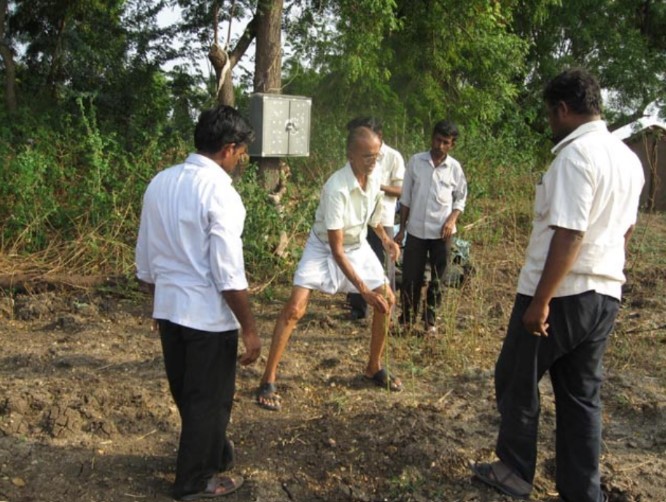
Turmeric happens to be a predominant crop on his farm. He also trains farmers in Sathyamangalam Organic Farming Network about the basics of cultivating the crop organically with maximum yield. In fact, for the past seven years, this farming network has been exporting nearly 160 tonnes of organic turmeric annually, which fetches around Rs 12000 per quintal, compared to chemically-grown turmeric which barely sells at around Rs 6000 to Rs 7000 per quintal.
“Sundararaman has been working on a very low-cost technology of liquid propagation. He procures the raw materials locally and uses the procedure for protecting the plants from all pests and diseases. He has almost perfected the concept and is now an inspiration for many farmers,” shares Babu P, an agricultural facilitator working with ICRA (International Centre for Development Oriented Research in Agriculture), Karnataka.
Babu also adds that Sundararaman is so enthusiastic about organic farming, such that even at this age he continually travels from Erode to Karnataka and other parts of Tamil Nadu to train hundreds of farmers.
He is continually researching newer ways and methods to increase the yield or accentuate the plant’s growth potential.
“We cannot force all the farmers in the country to do organic farming!”
For his cutting-edge innovations and consistency in organic farming, SR Sundararaman has been awarded the Sristi Sammaan Award.
When asked about his award-winning methods, he clarifies that there are as such no specific methods or process to follow in organic farming that can be exercised unanimously across all fields.
The soil in each region has its own natural properties which should be retained in the first place.
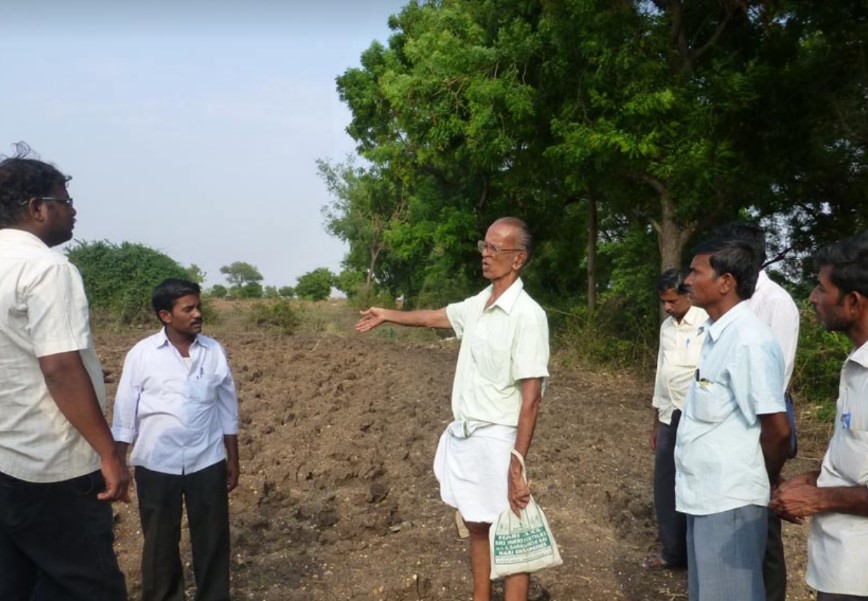
“Organic farming is entirely location-specific. It also depends on what crops are going to be farmed,” he says.
The expert farmer, however, laments that we cannot coerce every farmer in the country to get into organic farming, even though it is the best way possible in agriculture.
“Organic farming not only yields much profit but also protects the soil from losing its natural nutrients,” he informs, adding that the government should lay more focus on helping farmers adopt organic farming and saving an entire population.
Also Read: Kerala Technician Turns Organic Farmer, Earns Rs 8 Lakh From 40,000 Kg Harvest!
Like this story? Or have something to share?
Write to us: [email protected]
Connect with us on Facebook and Twitter.
If you found our stories insightful, informative, or even just enjoyable, we invite you to consider making a voluntary payment to support the work we do at The Better India. Your contribution helps us continue producing quality content that educates, inspires, and drives positive change.
Choose one of the payment options below for your contribution-
By paying for the stories you value, you directly contribute to sustaining our efforts focused on making a difference in the world. Together, let's ensure that impactful stories continue to be told and shared, enriching lives and communities alike.
Thank you for your support. Here are some frequently asked questions you might find helpful to know why you are contributing?


This story made me
-
97
-
121
-
89
-
167




